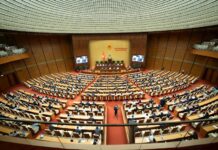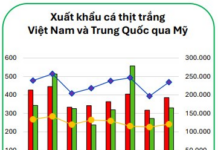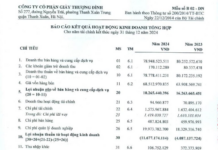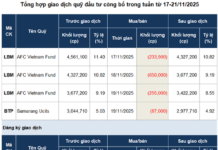Raising prices, businesses still reporting losses
On the morning of March 18, during the question-and-answer session with Minister of Finance Ho Duc Phoc, delegate Phan Thi My Dung (Long An Delegation) asked the Minister to explain why airfare has been increasing recently. What solutions will be taken to make it more convenient for people to travel and promote the development of the Vietnamese tourism industry in the future?
In response to this question, Minister of Finance Ho Duc Phoc explained that according to the regulations of the Price Law, the Ministry of Transport will determine the airfare price range. Airline companies will sell tickets within that price range. The ticket prices will be based on the actual travel demand of the people, in order to meet their needs.
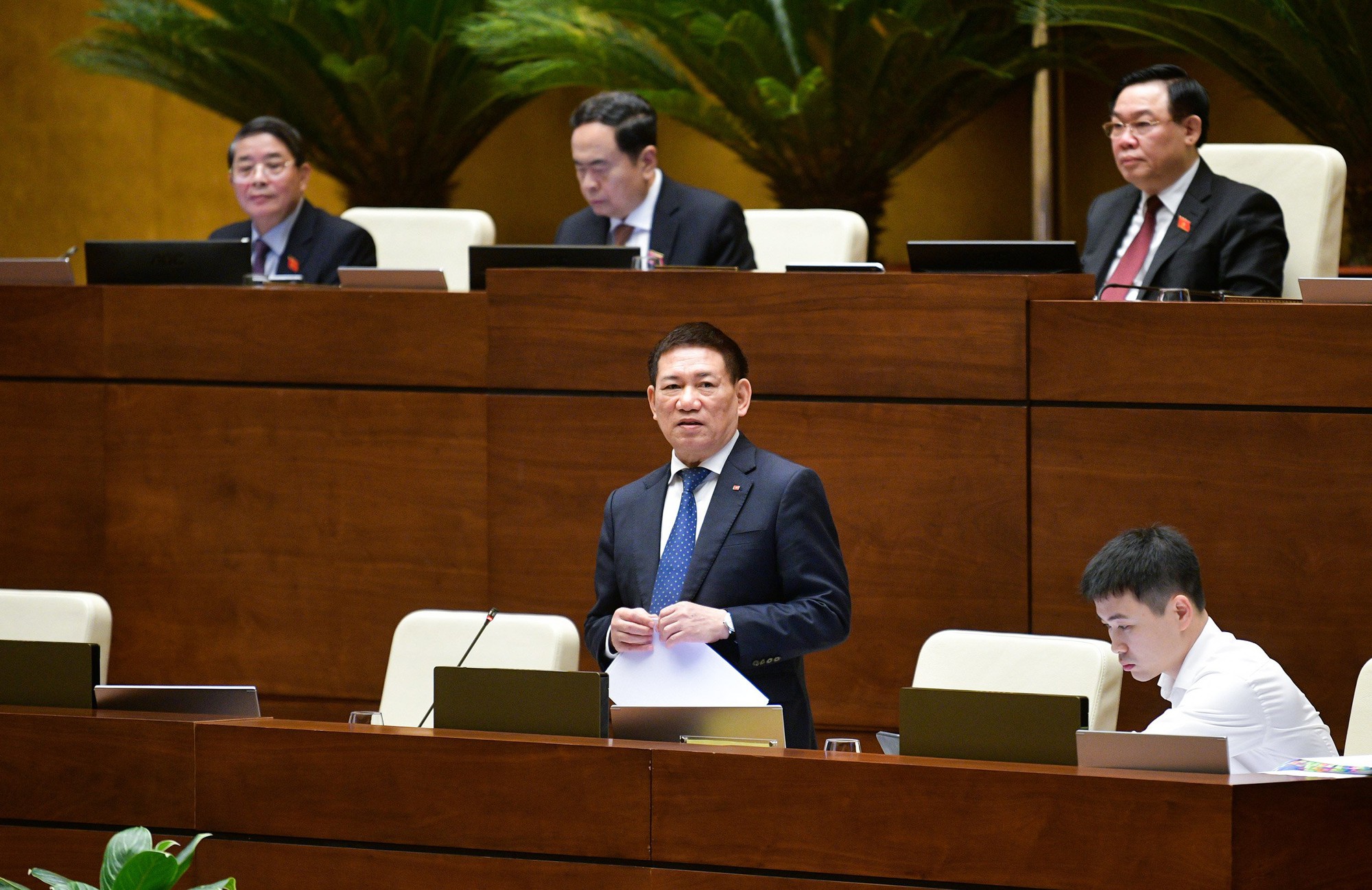
Minister of Finance Ho Duc Phoc answering questions on March 18
According to the Minister, even though airline ticket prices have increased, the companies are still reporting losses. For example, Bamboo Airways has cut many routes, while Vietjet is also facing difficulties. As for Vietnam Airlines, the Minister said that the airline is currently facing losses of up to 37,000 billion VND (approximately $1.6 billion), and the most profitable year only reached 3,000 billion VND (approximately $132 million), which is still very challenging.
After the Minister’s response, delegate Nguyen Quang Huan (Binh Duong Delegation) argued that increasing ticket prices is not always the solution to increase revenue. Instead, it is necessary to find the optimal revenue point based on supply and demand.
“There may be cases where ticket prices decrease but the number of passengers increases, resulting in higher revenue. I think airlines need to study this issue,” Mr. Huan said.
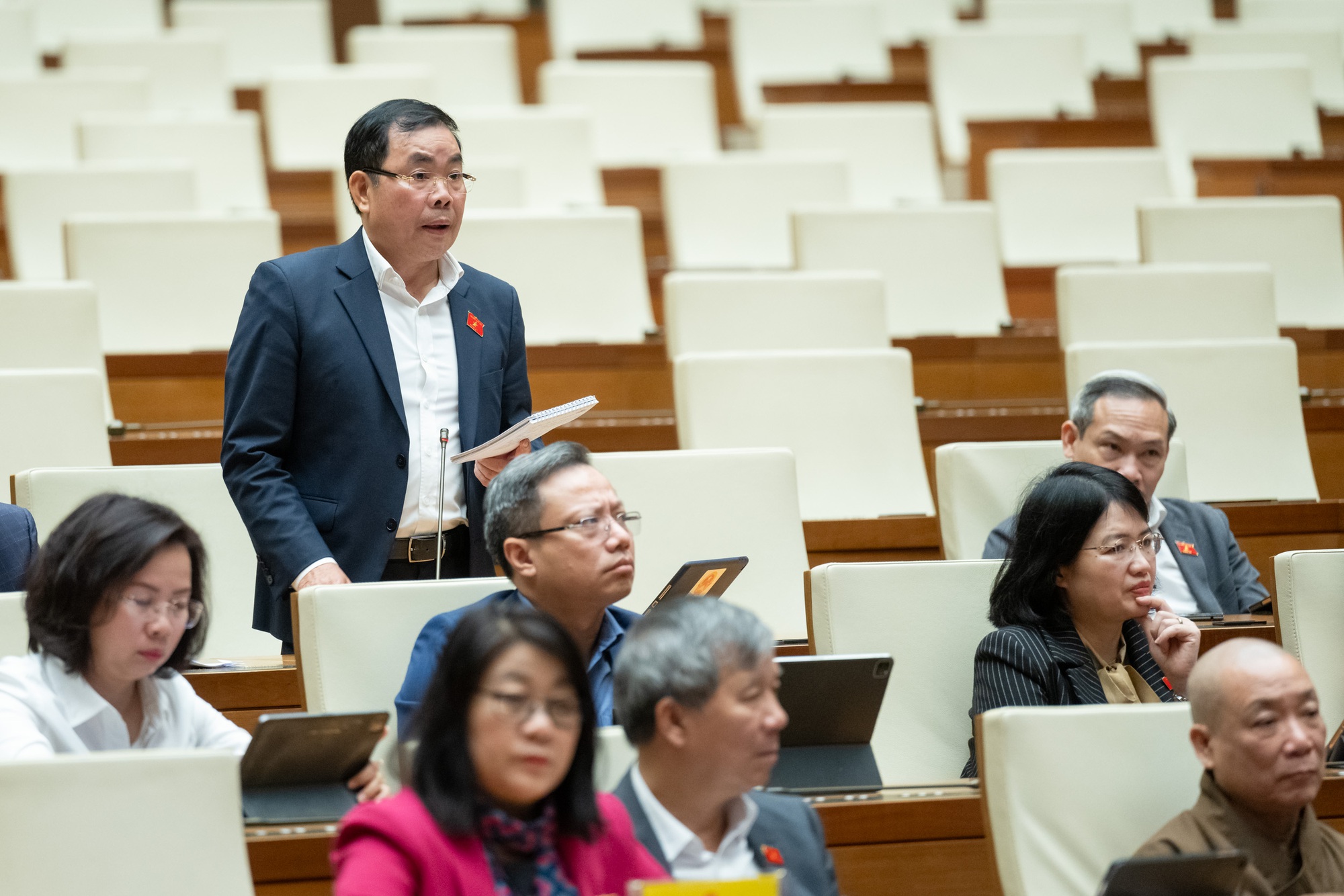
Delegate Nguyen Quang Huan (Binh Duong Delegation) believes that increasing ticket prices is not always the solution to increase revenue
Request for review, inspection, and examination
Continuing the debate, delegate Trinh Xuan An (Dong Nai Delegation) mentioned the issue of pricing management for goods such as electricity and airline tickets.
According to Mr. An, the high increase in airfare is not necessarily due to fuel prices or supply and demand. Regarding price management, we already have the Price Law, which has clear legal provisions. However, there is an paradox that “as prices increase, especially for state-owned enterprises, losses also increase.” Mr. An emphasized the need to solve this problem.
Mr. An believes that in order to determine prices, we need to consider the inputs, outputs, and other costs. For airline tickets, the cost issue, especially for Vietnam Airlines, is too high, which will directly affect the prices, rather than supply and demand or fuel prices.
Regarding electricity prices, the delegate from Dong Nai mentioned that electricity prices have only been increasing and never decreasing, but in reality, EVN (Electricity of Vietnam) is still reporting losses.
“Do we have a stable and transparent pricing calculation? Have we calculated correctly, completely, and transparently?” Mr. An raised the issue.
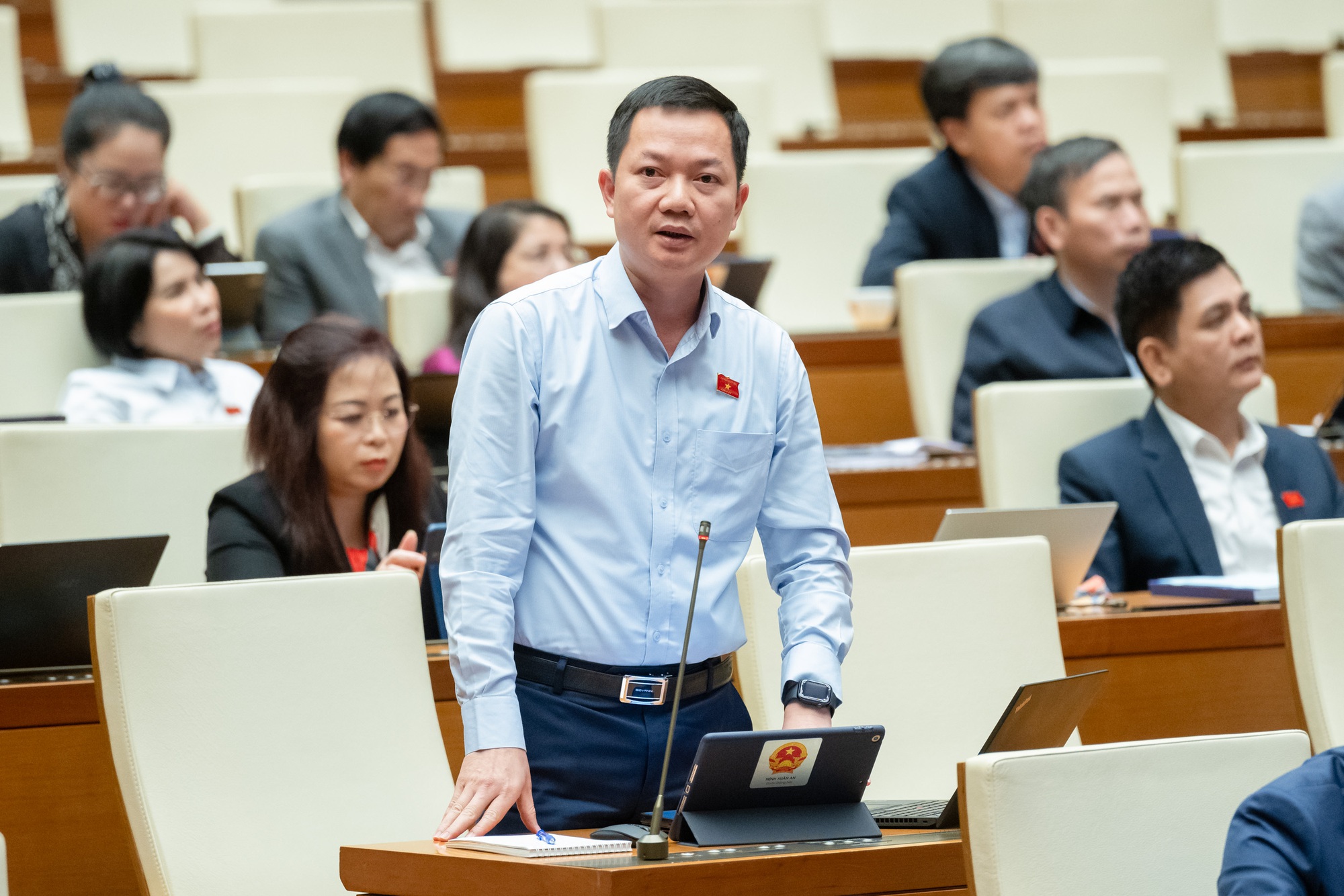
Delegate Trinh Xuan An (Dong Nai Delegation) raised the issue of whether pricing has been calculated correctly and transparently
According to Mr. An, as the Ministry of Finance, we also need to review, inspect, and examine to ensure that we do things correctly and protect the interests of businesses. If we continue to report losses like this, it’s not ideal, but we also need to ensure the interests of the people. We demand that the pricing must be reasonable, accurate, and sufficient.
“I believe that we need to ensure the interests of the state, businesses, and the people. This issue requires a comprehensive role of the Ministry of Finance, which is responsible for the state’s pricing management,” Mr. An said.
Airfare prices still within the price range
In his response, Minister Ho Duc Phoc acknowledged the opinions of delegates Nguyen Quang Huan and Trinh Xuan. However, the Minister emphasized that the airfare prices of the companies are still within the regulated price range. According to the Ministry of Transport, the airfare price range has 15 levels, and the airlines are operating within that range. They have not exceeded the limit.
However, Minister Phoc also mentioned that some countries have abolished the price cap for air tickets and allowed businesses to independently determine prices based on market supply and demand. Currently, our Price Law still sets a price cap for air tickets, and that cap is determined by the Ministry of Transport.
“Currently, the airlines are abiding by the regulations in the price cap, so they have not violated the law,” the Minister emphasized.
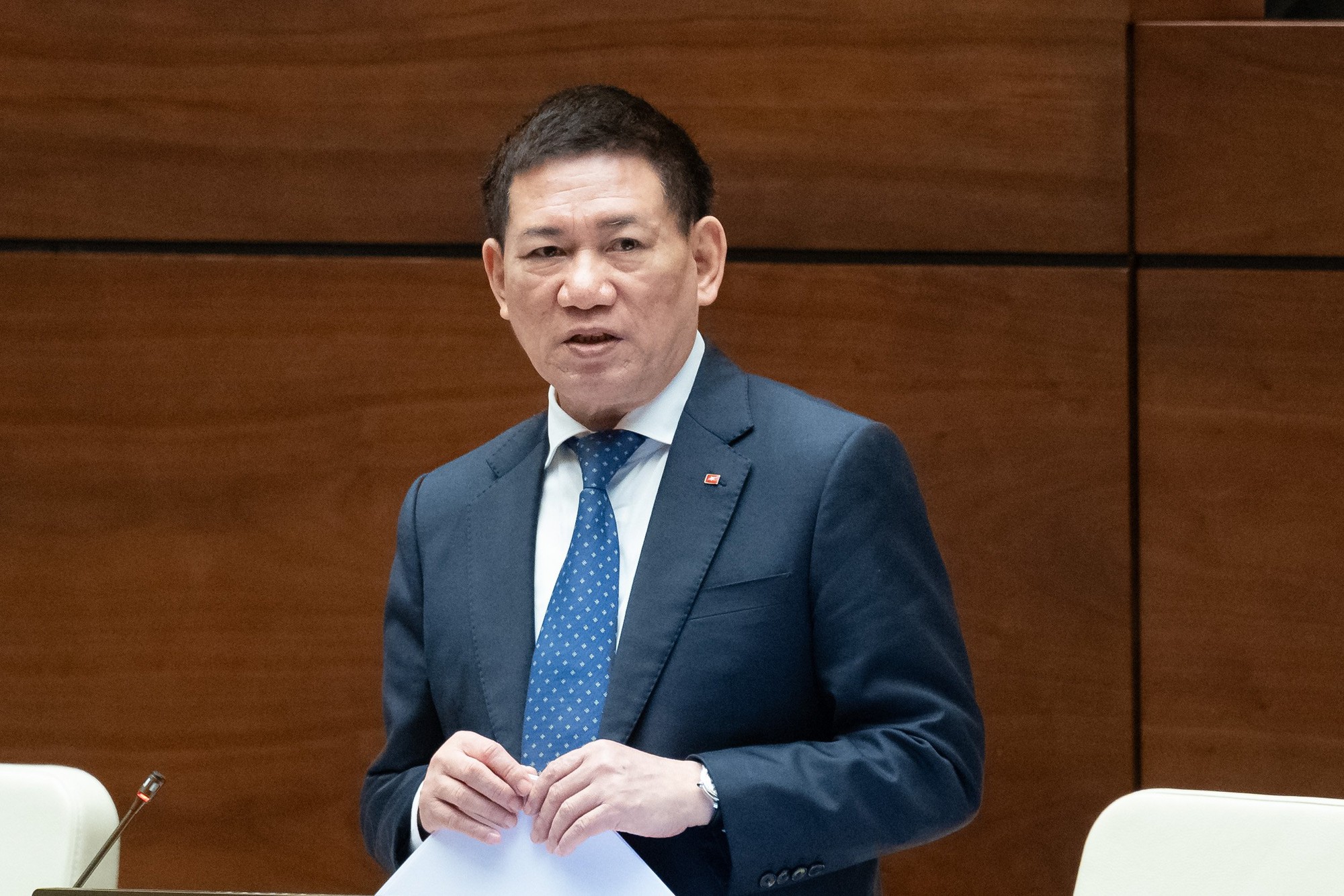
Minister of Finance Ho Duc Phoc emphasizes that the airfare prices of the companies are still within the price range
Additionally, in the past four years, the COVID-19 pandemic has caused flight suspensions, both domestic and international. This year, domestic and international travel is still limited.
“In the past, we had many Japanese and Russian tourists, but due to the situation, Russian tourists have decreased, and the value of the Japanese yen has also dropped, resulting in fewer tourists from Japan,” Minister Ho Duc Phoc explained.
According to the Minister, the issue is how to reduce input costs for restructuring. In terms of management and cost reduction, private enterprises are more concerned. As for Vietnam Airlines, the State Capital Management Committee and the Ministry of Transport are also paying close attention.







